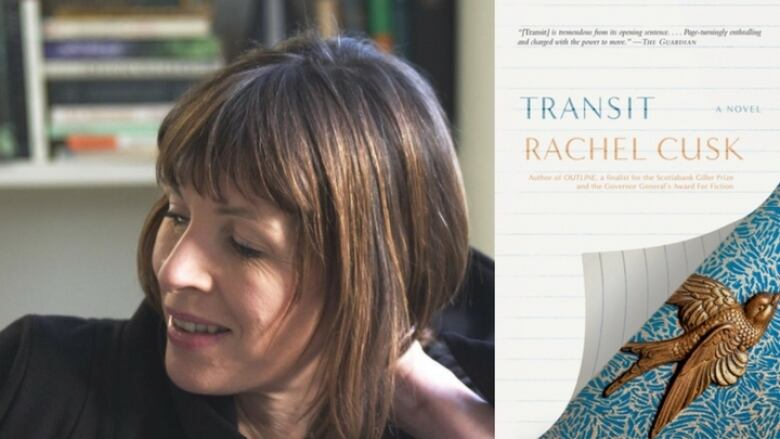Why Rachel Cusk avoided plot when writing her latest novel

Rachel Cusk is breaking from plot-driven writing, to much critical acclaim. Her trilogy of books that splits from conventional storytelling, follows Faye, a writer, professor and mother who has left her husband. The first, Outline, came out in 2015. In Transit, the second book in the series, Faye is in the middle of renovating her home. She shares detailed impressions of people and conversations spin off from everyday situations to themes of deep universal and metaphysical interest. Transit was shortlisted for the 2017 Scotiabank Giller Prize.
The final novel in the series, Kudos, came out in July 2018.
This interview originally aired on Nov. 27, 2017.
The problem with plots
"I've been writing novels since I was 26. I feel like I went through the basic ideas of narrative and story. I wanted to try and close the gap between my experience of life and truth and how those things were represented in fiction. I think a loss of belief in reality or in the structures through which we live is something that people actually experience in their own lives. I wanted to try and find a fictional form to describe that loss. It took me a very long time to come up with a concept of how this might be done without relying on the usual structures, the usual paragraphs, the usual sentences and the usual ways of observing the world — which really means that the books are shorter."
A protagonist is more than a cipher
"I suppose I see Faye as a human at a particular stage of evolution from systems of belief that people live through — marriage, parenthood and work — while trying to find some more abstract or spiritual truth about being. So she's not a cipher, she's just not walled in — she's not defined by a home or a relationship. She's looking for other kinds of reflection, which, to me, touches on the deepest mechanism of art and of self-expression by trying to respond to someone else's representation of living."
Renovating home life
"The idea of renovation and creating a home is that you're trying to impose your perfect vision. The situation that I've set up in the book is one in which stubborn, ugly reality won't let you do that. I think it's very much to do with femininity and the basic eternal relationship of woman to home and the work associated with it. Parenthood, cleaning, providing, nurturing — that's always been a powerful thing to be grappled with by any woman writer. And there's another way, which is to say 'I spurn all of that!' — 'I won't be a domestic person!' For the female intellectual, to live in chaos seems like the only alternative."
Rachel Cusk's comments have been edited and condensed.